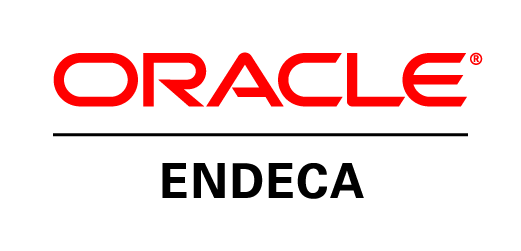Following are relevance ranking modules which decide ordering of records in Endeca.
Exact: The Exact module provides a finer grained, but more computationally expensive alternative to the Phrase module. It groups results into three strata: 1. Results whose complete text matches the search terms exactly. 2. Results that contain the search terms as an exact substring. 3. Other hits, such as normal conjunctive matches. Any match requiring query expansion lands in this lowest stratum
Field: The Field module ranks records based on the field priority defined for the search interface in which it matches. Only the best field in which a match occurs is considered.
First: The First module ranks records based on how close a match is to the beginning of a field. It is primarily for unstructured data.
Freq: The Frequency (Freq) module provides result scoring based on the frequency (number of occurrences) of the search terms within a record. Results with more occurrences of the user search terms are considered more relevant.
Glom: The Glom module ranks single-field matches ahead of cross-field matches. It serves as a useful tie-breaker in combination with the Maximum Field (Maxfield) module
Interp: The Interpreted (Interp) module scores records based on the processing techniques used to obtain the match. The techniques considered include partial matching, cross-field matching, spelling correction, thesaurus and stemming.
Maxfield: The Maximum Field (Maxfield) module behaves identically to the Field module, except in how it scores cross-field matches. Unlike Field, which assigns a static score to cross-field matches, Maximum Field selects the score of the highest-ranked field that contributes to the match.
Nterms: The Number of Terms (Nterms) module ranks matches according to how many search terms they match. For example, in a three-word query, results that match all three words will be ranked above results that match only two, which will be ranked above results that match only one.
Numfields: The Number of Fields (Numfields) module ranks records based on the number of complete matching fields defined in the applied search interface. Only whole-field, rather than cross-field, matches count. Therefore, a result that matches two fields matches each field completely, while a cross-field match typically does not match any field completely.
Phrase: The Phrase module considers the search terms as an exact phrase, or a subset of an exact phrase, more relevant than matches simply containing the search terms scattered throughout the text.
Proximity:The Proximity module ranks based on how close the search terms in a multi-term query appear to each other in a field. It is primarily for unstructured data.
Spell: The Spell module ranks true matches ahead of spelling-corrected matches.
Static: The Static module ranks records by an attribute in either ascending or descending order.
Stem: The Stem module ranks true matches ahead of matches due to stemming.
Stratify: The Stratify module is used to boost or bury records in the result set into various strata using the Endeca Query Language (EQL).
Thesaurus:The Thesaurus module ranks true matches ahead of matches due to thesaurus entries.
Wfreq: Like the Frequency (Freq) module, the Weighted Frequency (Wfreq) module scores results based on the frequency of search terms within a record. Additionally, the Weighted Frequency module weights the terms for each result by the overall frequency in the complete data set. Less frequent terms (that is, terms that would result in fewer search results) are weighted more heavily than more frequently occurring terms.
Connect kubernetes pod to a GCS bucket using JS
To connect from a Kubernetes pod to a Google Cloud Storage (GCS)…Easiest way to run an LLM locally on your Mac
I recently sought an efficient method for local experimentation with Language Model…EKS cluster using an existing VPC
The eksctl command line tool can create a cluster by either command-line options or…kubectl Unable to connect to the server
When working with Kubernetes if you are getting Unable to conntect to…


